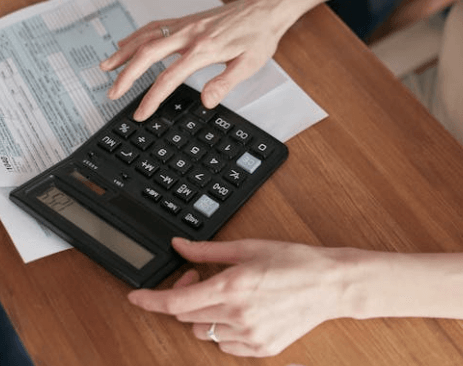It might seem like an opportunity to pay someone else’s land taxes in Florida to gain property rights, but it does not automatically transfer ownership. Instead, it could open the door to initiating a tax deed application if the original owner fails to repay the taxes during the redemption period, typically two years. Florida’s tax system offers lucrative opportunities, such as earning up to 18% interest on tax lien certificates, but it requires strategic planning to avoid risks. Renowned real estate investors Steve Daria and Joleigh, experts in purchasing land for cash, have a proven track record of navigating such scenarios successfully. Their experience highlights the potential benefits of attending tax deed auctions or acquiring tax liens as part of a successful investment strategy. If you’re considering whether to pay someone else’s land taxes in Florida, understanding the rules and seeking expert guidance are key to protecting your investment. Book a free discussion with leaders like Steve and Joleigh today to discover how you can make the most of this unique opportunity!
Key Points
- Legal Implications of Paying Land Taxes: If you pay someone else’s land taxes in Florida, it does not automatically grant you property ownership. However, it can position you to initiate a tax deed application if the original owner fails to repay the taxes during the redemption period.
- Potential Financial Benefits: Paying land taxes on someone else’s property can open lucrative opportunities, like acquiring a valuable tax lien. Florida offers up to 18% interest on tax lien certificates, making it an appealing choice for savvy investors.
- Risks to Be Aware Of: The process can be rewarding, but it also involves risks, like losing money if the original owner redeems the property. Understanding the law and planning carefully is key to minimizing these risks.
- Understanding the Tax Deed Application Process: If the redemption period ends without repayment, you may apply for a tax deed auction. This step can potentially lead to property ownership but involves specific procedural requirements you must meet to proceed.
- Expert Advice to Maximize Success: Renowned real estate professionals like Steve Daria and Joleigh, who are experienced in buying land for cash, emphasize the importance of strategic planning. Consulting with experts can help you capitalize on the potential rewards of paying someone else’s land taxes in Florida while avoiding common pitfalls.
What Does It Mean to Pay Someone Else’s Land Taxes?
Paying someone else’s land taxes, often called a tax lien investment, involves covering unpaid property taxes on a portion of real estate you do not own.
In many states, including Florida, this can lead to the acquisition of the property if the original owner fails to repay you within a specified period.

Strategies to Pay Someone Else’s Land Taxes in Florida
When considering paying someone else’s land taxes in Florida, it’s crucial to understand the strategic steps involved associated with the process.
Tax Lien
Investors pay delinquent taxes and receive a certificate that entitles them to collect the unpaid amounts plus interest.
If the property owner doesn’t settle their debt, the debtor may eventually foreclose on the property.
Tax Deed Sales
Sometimes, the county auction properties with unpaid taxes.
Winning bidders pay the taxes and receive a tax deed, which could lead to property ownership after legal processes.
Get Started: Get Your Cash Offer Below…
We are direct land buyers. There are no commissions or fees and no obligation whatsoever. Start below by sharing where your property is and where we can send your offer…
The Benefits of Paying Someone Else’s Land Taxes
To pay someone else’s land taxes in Florida can offer potential benefits for savvy investors:
High Returns
Tax lien certificates can yield high interest rates.
In Florida, the maximum interest rate is 18% per annum.
Property Acquisition
If the property owner cannot repay the taxes, the investor may acquire the property at a fraction of its market value.
Diversification
Investing in tax liens or deeds can diversify an investor’s portfolio, providing investors with traditional real estate investments.
The Risks and Consequences
Despite the potential benefits, this strategy comes with significant risks and consequences:
Uncertainty
There’s no guarantee that the owner won’t repay the taxes, meaning you might end up with just the interest and not the property.
Legal Complications
Property foreclosure can be complex and costly, requiring legal expertise and additional expenses.
Property Condition
Acquiring a property through tax liens or deeds only sometimes allows for a thorough inspection beforehand.
You might inherit a property with significant issues or liabilities.
Market Variability
Real estate markets fluctuate, and the property’s value might decline, impacting investment returns.
Legal Considerations in Florida
Florida has specific laws governing tax lien certificates and tax deed sales.
Knowing these regulations is crucial for anyone considering this investment strategy:
Redemption Period
In Florida, property owners have two years to redeem their property by paying the outstanding taxes plus interest.
During this period, you can’t take possession of the pantry.
Auction Process
Florida conducts tax lien auctions where investors bid on the interest rate they’re willing to accept. Their bidder wins the certificate.
Foreclosure
If the property owner doesn’t redeem the property during redemption period, the investor can initiate foreclosure proceedings to obtain ownership.
Tips for Success
To maximize your chances of success when paying someone else’s land taxes, consider these:
Research Thoroughly
- Property Condition: Conduct thorough research into the property’s condition before committing to pay someone else’s land taxes. Consider structural integrity, maintenance needs, and any issues affecting its value or marketability.
- Market Analysis: Awareness of the local real estate market to gauge property values, demand trends, and potential for appreciation. Knowing the market dynamics can help you make informed decisions about the property’s investment potential.
- Existing Liens or Encumbrances: Investigate whether the property has any existing liens, encumbrances, or legal issues that may affect its title or ownership rights. Clearing any outstanding debts or legal hurdles before proceeding with tax payments is essential.
Understand the Law
- Florida’s Tax Lien and Tax Deed Laws: Familiarize yourself with Florida’s tax lien and tax deed laws to navigate the process effectively and comply with legal requirements. Understanding the statutory framework governing tax-related transactions is essential for protecting your interests and avoiding legal pitfalls.
- Legal Obligations and Responsibilities: Educate yourself about your legal obligations and responsibilities as a taxpayer or investor in Florida. Ensure compliance with tax laws, reporting requirements, and procedural deadlines to avoid penalties or legal consequences.

Attend Auctions
- Participate in Local Auctions: Attend local tax lien or tax deed auctions to gain firsthand experience and insights into the process. Observing auctions allows you to familiarize yourself with auction dynamics, bidding strategies, and investment opportunities in your area.
- Network with Industry Professionals: Connect with experienced investors, real estate agents, and auctioneers at local auctions to widen your network and gain valuable knowledge. Connecting with industry professionals can provide access to resources, mentorship, and investment opportunities.
Frequently Asked Questions
Find answers to common queries about the implications and legal aspects of paying someone else’s land taxes in Florida.
Can Anyone Pay Someone Else’s Land Taxes in Florida?
Anyone can participate in tax lien auctions or purchase tax deeds, following the state’s regulations and procedures.
How do I Find Properties with Delinquent Taxes?
Counties in Florida maintain lists of properties with unpaid taxes, typically available online or at the county tax collector’s office.
What Are the Costs Involved?
In addition to the unpaid taxes, you may incur legal fees, foreclosure costs, and other expenses related to acquiring and maintaining the property.
Be sure to check out our page Selling Land with Issues in Florida. Also any common landowner questions are addressed in the Florida Land Selling Guide.
**NOTICE: Please note that the content presented in this post is intended solely for informational and educational purposes. It should not be construed as legal or financial advice or relied upon as a replacement for consultation with a qualified attorney or CPA. For specific guidance on legal or financial matters, readers are encouraged to seek professional assistance from an attorney, CPA, or other appropriate professional regarding the subject matter.
Get Started: Get Your Cash Offer Below…
We are direct land buyers. There are no commissions or fees and no obligation whatsoever. Start below by sharing where your property is and where we can send your offer…
